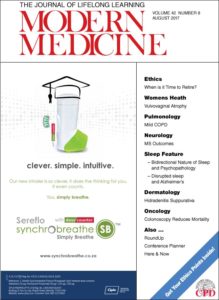Managing Fertility is More than Taking a Pill
Avoiding pregnancy when it is not desired and achieving a desired
pregnancy are matters of concern throughout the reproductive life
course. Modern contraceptives have contributed to fertility management
in what has been termed the “reproductive revolution.” These are
presumed to enable all women and men to manage fertility optimally.
Subsequent surveys of contraceptive use, pregnancy intention, pregnancy
outcome, and ideas about family formation have found that this has not
been realised.
Modern Medicine – September 2017





